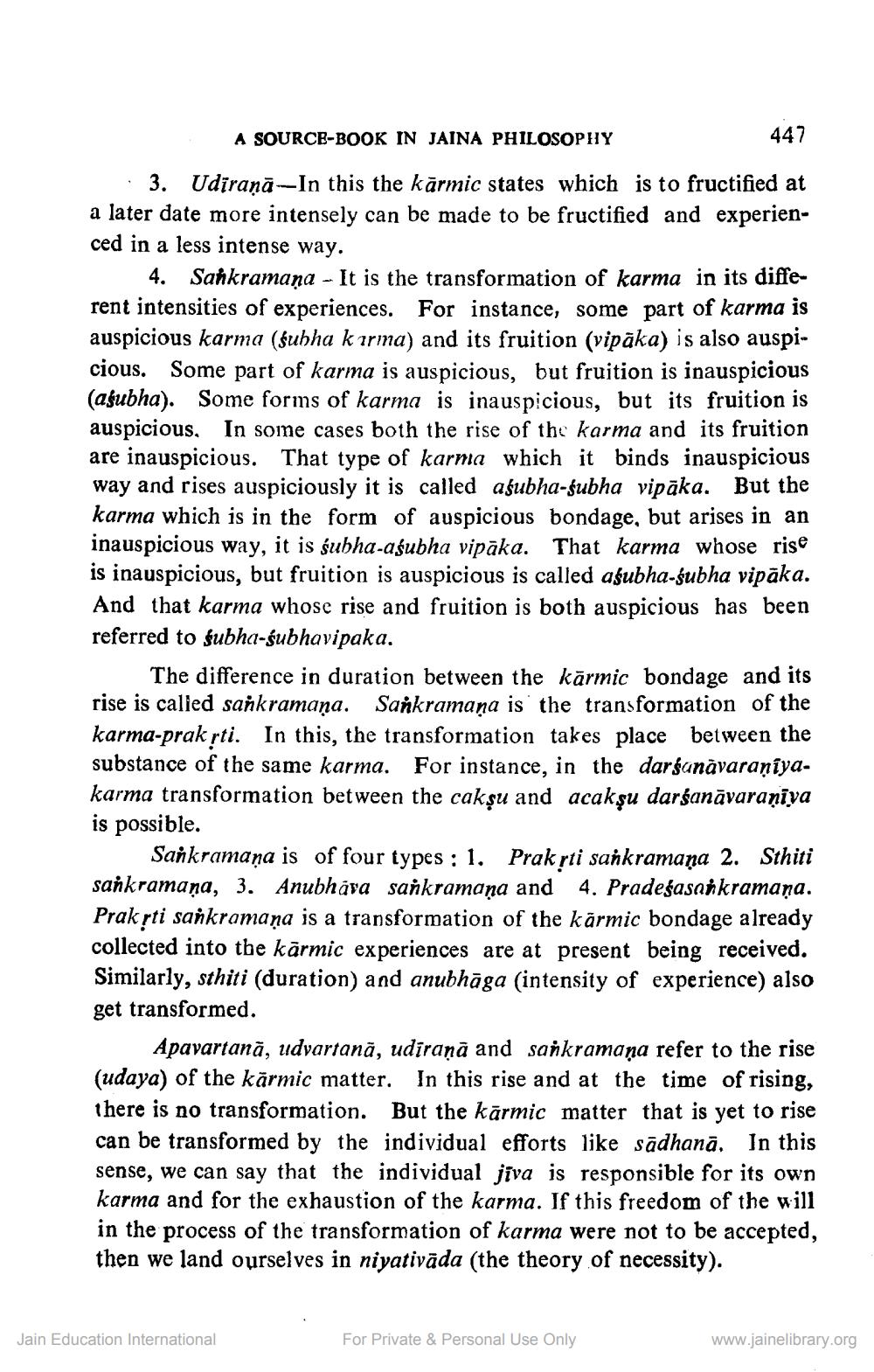________________
A SOURCE-BOOK IN JAINA PHILOSOPHY
447
• 3. Udiraņā---In this the kārmic states which is to fructified at a later date more intensely can be made to be fructified and experienced in a less intense way.
4. Sankramana - It is the transformation of karma in its different intensities of experiences. For instance, some part of karma is auspicious karma (śubha karma) and its fruition (vipāka) is also auspicious. Some part of karma is auspicious, but fruition is inauspicious (asubha). Some forms of karma is inauspicious, but its fruition is auspicious. In some cases both the rise of the karma and its fruition are inauspicious. That type of karma which it binds inauspicious way and rises auspiciously it is called aśubha-subha vipāka. But the karma which is in the form of auspicious bondage, but arises in an inauspicious way, it is subha-aśubha vipāka. That karma whose rise is inauspicious, but fruition is auspicious is called aśubha-śubha vipāka. And that karma whose rise and fruition is both auspicious has been referred to subha-śubhavipaka.
The difference in duration between the kārmic bondage and its rise is called sankramaņa. Sankramana is the transformation of the karma-praksti. In this, the transformation takes place between the substance of the same karma. For instance, in the dargunāvaraṇīyakarma transformation between the cakşu and acakşu darśanīvaraṇīya is possible.
Sankramaņa is of four types : 1. Praksti sankramaņa 2. Sthiti sankramaņa, 3. Anubhava sankramana and 4. Pradeśasankramaņa. Praksti sankramana is a transformation of the kārmic bondage already collected into the kārmic experiences are at present being received. Similarly, sthiti (duration) and anubhāga (intensity of experience) also get transformed.
Apavartanā, udvartanā, udīraņā and sankramana refer to the rise (udaya) of the kārmic matter. In this rise and at the time of rising, there is no transformation. But the kārmic matter that is yet to rise can be transformed by the individual efforts like sādhanā. In this sense, we can say that the individual jiva is responsible for its own karma and for the exhaustion of the karma. If this freedom of the will in the process of the transformation of karma were not to be accepted, then we land ourselves in niyativāda (the theory of necessity).
Jain Education International
For Private & Personal Use Only
www.jainelibrary.org




